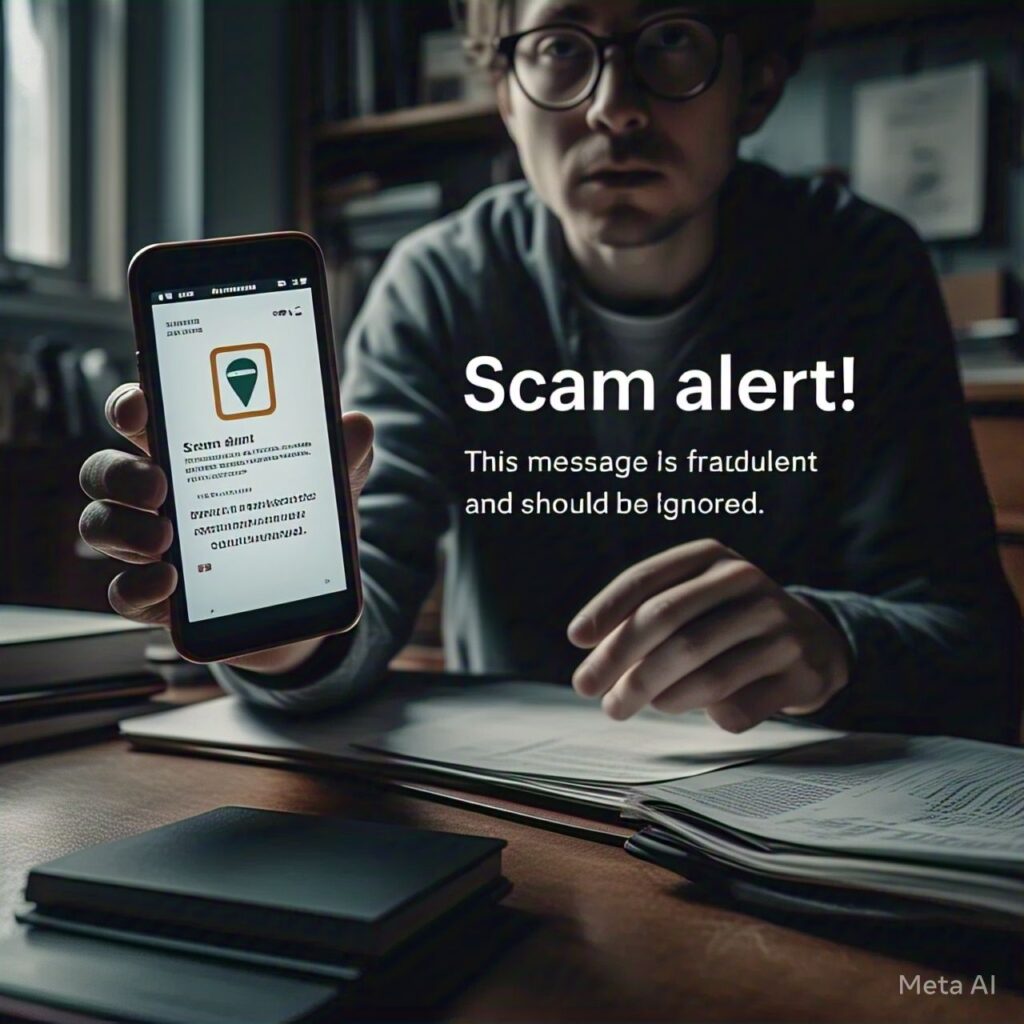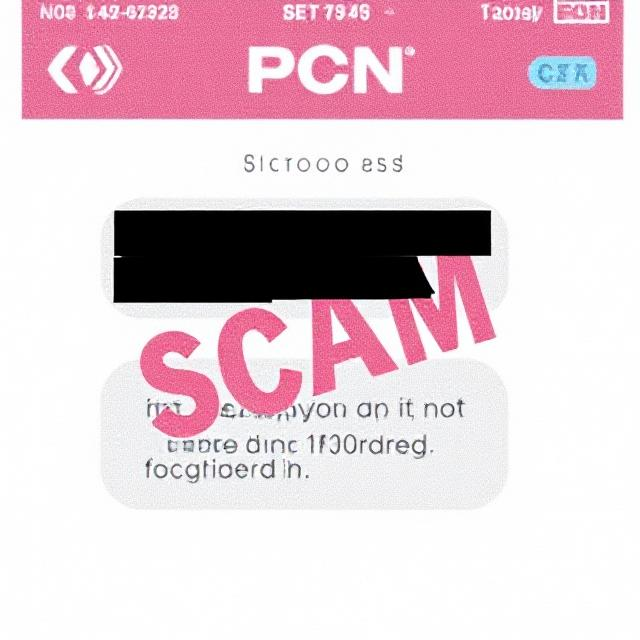Signal App Scams: Are Signal App Scams Real? How to Spot a Signal App Scam & Protect Yourself
Signal is generally considered a secure messaging app, but like any platform, Signal App Scams can still be exploited for scams. Signal is renowned for its robust end-to-end encryption, ensuring private and secure communications. However, like any popular platform, it has become a target for various scams. Being aware of these fraudulent activities is crucial for maintaining your security.
To avoid scams on Signal:
- Always verify the identity of the person you’re communicating with.
- Be cautious of unsolicited messages, especially those asking for money or personal details.
- Don’t click on suspicious links or attachments.
- Enable two-factor authentication on your account for extra security.
What is signal app?
Signal is a free, open-source messaging app that prioritizes user privacy and security. It allows users to send text messages, make voice and video calls, share multimedia like photos and videos, and send voice messages—all with end-to-end encryption. This means that only the sender and the recipient can read or listen to the messages; even Signal itself cannot access the content of your conversations.
Key features of Signal include:
- End-to-End Encryption: All messages, calls, and media shared through Signal are encrypted, ensuring that only you and the recipient can read or hear them. This makes it one of the most secure messaging platforms.
- No Ads or Tracking: Signal doesn’t show ads, and it doesn’t collect data about you. The app’s primary goal is to ensure privacy rather than make money through user data.
- Cross-Platform Support: Signal works on both Android and iOS devices, and it has a desktop version as well, allowing for seamless communication across different devices.
- Self-Destructing Messages: You can set messages to automatically delete after a specified period, providing an additional layer of privacy.
- Open Source: Since the app’s code is open-source, anyone can inspect it, ensuring transparency and trust in its security practices.
- No Phone Number Required: While Signal uses your phone number to create an account, the app does not store or share your phone number with other users, and it has features to mask your number when using it for calls.
How Does signal app scams?
Signal works by using end-to-end encryption to secure all communications between users. Here’s a breakdown of how it works in practice:
1. Creating an Account
To use Signal, you first need to download the app from the Google Play Store (for Android) or the Apple App Store (for iOS). When you sign up, you’ll need to provide your phone number for account verification. However, Signal doesn’t store or share your phone number with other users; it’s used just for account setup and to connect with others on the platform.
2. Encryption & Privacy
Signal’s main feature is its strong end-to-end encryption. This means that only the sender and recipient can read or listen to messages or calls. Here’s how it works:
- Encryption Keys: When you send a message, it’s encrypted on your device before being sent to the recipient. Signal uses a combination of encryption techniques (like the Signal Protocol) to ensure that only the recipient’s device can decrypt the message using a secret decryption key.
- No Access to Content: Even Signal itself can’t read your messages. Only you and the person you’re communicating with hold the keys to decrypt the messages.
3. Sending Messages
- Text & Media: You can send text messages, photos, videos, audio messages, files, and even documents. All of this is encrypted before it leaves your phone.
- Signal’s Servers: When you send a message, it’s temporarily routed through Signal’s servers. But the message is encrypted before it leaves your phone, and Signal’s servers cannot decrypt it. The only purpose of the server is to deliver the message to the recipient.
4. Making Calls
- Voice & Video Calls: Signal allows encrypted voice and video calls between users. When you make a call, your voice or video data is encrypted from end-to-end. No one, including Signal, can listen in on the call.
- Secure Calling: Calls are routed through the internet (using VoIP, like other apps), and encryption ensures that only you and the person you’re talking to can hear or see the call.
5. Self-Destructing Messages
Signal offers the option for messages to disappear after a set period of time. This means you can send messages that will automatically delete after the recipient has read them, providing additional privacy.

6. Group Chats
You can create group chats in Signal with up to 1,000 participants. These group chats are also encrypted end-to-end. Even if you’re in a group with many people, the app ensures privacy and security for all participants.
7. No Ads & Minimal Data Collection
Signal doesn’t use ads, and it doesn’t collect data to sell. It’s funded by donations and grants from organizations that care about user privacy. It collects only the minimum data required to operate the app, such as phone numbers (for verification) and some basic usage statistics (but these are anonymized).
8. Verification and Safety Numbers
To ensure that you’re communicating with the person you intend to, Signal offers a safety number that can be verified. This number is unique to your conversation and is used to verify the identity of the contact you’re chatting with. If you’re ever unsure, you can compare safety numbers with the other person to ensure that your connection hasn’t been tampered with.
9. Decentralized Approach
Signal is decentralized in terms of its architecture. Although messages pass through Signal’s servers, those servers can’t read or store them. This reduces the risks associated with centralized data storage.
10. Open-Source
Signal is open-source software, meaning that its source code is available for anyone to inspect, audit, and contribute to. This ensures that security experts can verify the app’s security measures and guarantees that there are no backdoors or malicious elements.
How Signal Protects Privacy?
- Minimal Metadata: Signal collects almost no metadata (data about who you communicate with and when). The app only retains information about when you registered and the last time you connected to the service, but it doesn’t link any of this to your identity.
- No Ads, No Tracking: Signal doesn’t track your behavior or serve you ads. Your conversations and activity are your business.
is Signal App used for Scamming?
While Signal itself is a secure, privacy-focused messaging app, like any communication tool, it can be misused for malicious purposes, including scamming. However, it’s important to understand that the app itself is not designed for scams. The strong end-to-end encryption and privacy features make it a popular choice for people who value security. Scammers might exploit the app for its anonymity and the security it offers to avoid detection, but these actions are still illegal and unethical.
Here are a few ways Signal might be misused for scams:
1. Impersonation Scams
Scammers can create fake identities on Signal, often pretending to be someone you know or a trusted figure. They may try to trick you into:
- Sending money or gifts in emergencies (e.g., claiming they are stuck in a foreign country).
- Offering fake jobs or investment opportunities.
- Requesting personal information (e.g., for “verification purposes”).
2. Romance Scams
Since Signal allows you to chat privately and securely, scammers may use it to build fake relationships with victims. They establish an emotional connection, gain trust, and then manipulate the person into:
- Sending money under the guise of an emergency or financial need.
- Sharing sensitive personal information.
3. Phishing Scams
Scammers may send phishing messages through Signal to try to steal your information. They might:
- Send fake messages pretending to be a trusted service (like your bank or an official entity), asking you to click on malicious links or enter sensitive details (such as passwords or credit card information).
- Use fake links to trick you into downloading malicious software that compromises your device.
4. Investment Scams
Scammers may also use Signal to promote fake investment opportunities, like cryptocurrency schemes or fake trading platforms, promising high returns. The goal is to convince you to send money or crypto to the scammer, who then disappears.
5. Fake Lottery/Prize Scams
Scammers can reach out on Signal claiming you’ve won a lottery or prize and need to pay a “fee” to claim it. They use social engineering tactics to get people to transfer money or provide financial information.
Why Signal Is Attractive for Scammers:
- Encryption: The end-to-end encryption ensures that messages are private, making it harder for law enforcement or other parties to monitor or trace conversations.
- Anonymity: Since Signal uses phone numbers for registration, scammers can operate under the radar by using disposable numbers, making them harder to trace.
- Self-Destructing Messages: The feature that allows messages to disappear after a certain time could be used by scammers to cover their tracks.
Protecting Yourself on Signal:
Even though Signal is a secure platform, here are a few things you can do to protect yourself from scams:
- Verify Contacts: Always double-check the identity of people who reach out to you. If it’s someone you know, use a different method (like a phone call) to verify their identity if something seems off.
- Don’t Share Personal Information: Never share sensitive information like your bank account details, social security number, or passwords, especially with someone you haven’t verified.
- Be Cautious with Links and Attachments: Don’t click on links or open attachments from unfamiliar contacts. They might lead to phishing websites or malware.
- Report Suspicious Accounts: If you believe you’re being scammed or a contact is behaving suspiciously, report the account to Signal.
- Enable Two-Factor Authentication (2FA): Signal has an option for setting up a PIN and enabling two-factor authentication (2FA) to further protect your account from being accessed by anyone else.
What to Do If You Spot a Scam on Signal:
- Do Not Engage: If you suspect a scam, immediately stop communicating with the person.
- Block the Scammer: Signal has a “Block” feature that prevents the scammer from contacting you again.
- Report the Scam: Use Signal’s “Report” feature to alert their team about suspicious accounts.
- Protect Your Information: Never share your financial, personal, or sensitive details with strangers or unverified contacts.
- Alert Authorities: If you’ve lost money or shared sensitive information, report the scam to your local authorities or consumer protection agencies.
Conclusion:
While Signal itself is not used specifically for scamming, its privacy features can attract scammers who are looking for a secure and private way to target victims. However, by following good security practices and being cautious, you can reduce the risk of falling victim to scams.
check similar reviews: Flipped App Real or Fake
Frequently Asked Question
Here are some frequently asked questions (FAQs) about Signal app scams:
1. Can scammers use Signal to trick people?
Yes, scammers can use Signal, just like any other messaging platform, to trick people into sending money, sharing personal information, or participating in fraudulent schemes. However, Signal’s security features, like end-to-end encryption, make it more difficult for scammers to exploit the platform without facing extra challenges. That said, scammers can still misuse the app to carry out phishing, romance scams, impersonation, and other types of fraud.
2. How can I spot a scam on Signal?
To avoid falling for a scam, look for the following red flags:
- Urgency: Scammers often try to create a sense of urgency to pressure you into making quick decisions (e.g., “Send money now, or you’ll miss out”).
- Unsolicited Contact: Be cautious if someone you don’t know contacts you out of the blue and asks for help, especially financial help.
- Too Good to Be True Offers: Scammers may promise incredible returns or rewards with little to no effort (e.g., “Invest $100 and make $10,000 in a week”).
- Suspicious Links: Avoid clicking on links sent by unknown contacts, as they might lead to phishing sites or malware.
- Reluctance for Video/Voice Calls: If someone refuses to make a video or voice call, it could be a sign they are trying to hide their true identity.
3. How do scammers impersonate people on Signal?
Scammers can create fake profiles on Signal using a real or fabricated name and a phone number. They may impersonate someone you know, such as a friend, family member, or coworker, and ask for financial help, personal information, or other assistance. They may claim they lost access to their phone or account and can only communicate via Signal.
How to prevent it:
- Confirm their identity using a secondary method (e.g., calling them directly or using a different platform like email).
- Ask them questions that only the real person would know.
4. What is a romance scam on Signal?
A romance scam occurs when a scammer creates a fake identity online to form an emotional connection with you. After weeks or months of conversation, they will ask for money, often claiming they are in a dire situation, like being stranded abroad or needing funds for medical emergencies. They might also try to manipulate you emotionally to gain your trust.
How to avoid romance scams:
- If someone quickly becomes overly affectionate and asks for money early in the relationship, be suspicious.
- Never send money to someone you haven’t met in person.
- If the conversation moves to Signal or any other encrypted platform, it may be to hide their activities.
5. Can I protect my account from being hacked?
While Signal is designed to be secure, you can take steps to further protect your account:
- Use a strong password or PIN for your Signal account.
- Enable Two-Factor Authentication (2FA) to add an extra layer of security to your account.
- Be cautious with sharing your phone number or account details. Scammers may try to impersonate you by gaining access to your phone number.
- Avoid using public Wi-Fi when accessing Signal to reduce the risk of someone intercepting your data.
- Check security codes to ensure your communications are not being intercepted.
6. What should I do if I suspect I’m being scammed on Signal?
If you suspect that you’re being scammed on Signal, take these steps immediately:
- Stop Communication: Do not engage further with the suspicious contact.
- Block the Scammer: Block the person to prevent further contact.
- Report the Account: Use the “Report” option in Signal to alert them to potential fraudulent activity.
- Protect Your Personal Information: If you’ve shared sensitive details (like your bank account, password, or ID), take immediate steps to secure your accounts (change passwords, contact your bank, etc.).
- Notify Authorities: If you’ve lost money or been coerced into sending sensitive information, consider reporting the scam to local authorities or consumer protection organizations.
7. Can I get my money back if I was scammed on Signal?
Unfortunately, recovering money lost to a scam can be difficult, especially with methods like wire transfers, gift cards, or cryptocurrency, which are often favored by scammers for their irreversibility. However:
- If you sent money via a bank transfer, contact your bank immediately to see if they can stop the transaction or trace the funds.
- For cryptocurrency or gift cards, once the transaction is complete, it’s virtually impossible to recover the funds.
- Report the scam to authorities (e.g., your local police, consumer protection agencies), and they may be able to provide advice or take action.
8. Are there any security features to help avoid scams on Signal?
Yes, Signal offers several features to help protect users from scams:
- Safety Numbers: Each conversation has a unique safety number to verify that you’re talking to the person you think you are. If the number changes, it might indicate a potential security breach.
- Screen Lock: You can set up a lock on the Signal app to ensure only you can access it, protecting it from unauthorized access.
- Self-Destructing Messages: Messages can be set to disappear after they’ve been read, ensuring they don’t linger on your device or the recipient’s.
- Encrypted Group Chats: Group chats are fully encrypted, so even if someone tries to eavesdrop, they won’t have access to the content.
9. What should I do if I receive a suspicious link or attachment on Signal?
If you receive a suspicious link or attachment from an unknown contact or anyone who seems out of character:
- Do not click on the link or open the attachment.
- Ask the sender to verify the link or attachment before you interact with it.
- If the sender is a stranger, report the account and block them.
10. Is there any way to recover deleted messages or contacts?
Signal does not store messages on its servers after they are delivered, and it doesn’t offer an official method to retrieve deleted messages. However, you can back up your Signal messages manually to an encrypted backup on your device. If you haven’t enabled backups before losing messages, unfortunately, there’s no way to recover them.






